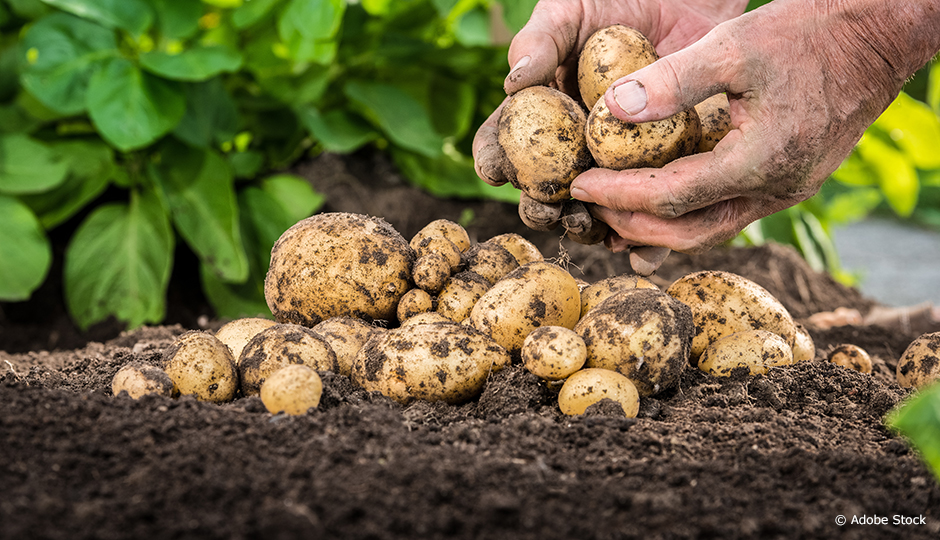In 2002, potato producers suffered losses of between 16 and 17 million dollars due to common potato scab. Not because the disease affects the yield of potatoes, but because it makes them less attractive to consumers and more difficult to transform into French fries. Farmers’ only available weapon was a highly toxic, expensive and largely ineffective fungicide. Now it is science to the rescue in the form of Nathalie Beaudoin, a biology professor at Université de Sherbrooke, who is seeking to develop new technology to increase potato resistance to common scab.
Nathalie Beaudoin and her team are working on creating potatoes that are habituated to the toxin
The disease is caused by a phytotoxin produced by soil dwelling bacteria that infects and disfigures potatoes—as well as carrots, turnips and beets—producing lesions on the surface of the tubers that make them less marketable. Nathalie Beaudoin and her team are working on creating potatoes that are habituated to the toxin, rendering them more resistant to scab. They cultivated potato cells with increasingly strong doses of the toxin. These cells were then used to produce plants from which tubers were harvested. When these tubers were exposed to scab bacteria, biologist observed that their resistance had increased by 20%. Proteomic (protein identification) analysis showed this result to be due to a “vaccination” effect: defense mechanisms were triggered more quickly in the potatoes produced from toxin-habituated cells. Nathalie Beaudoin is pursuing her analysis to identify other causal factors of common scab, as some species that are resistant to the toxin are still found to develop the disease… A mystery to be solved!




